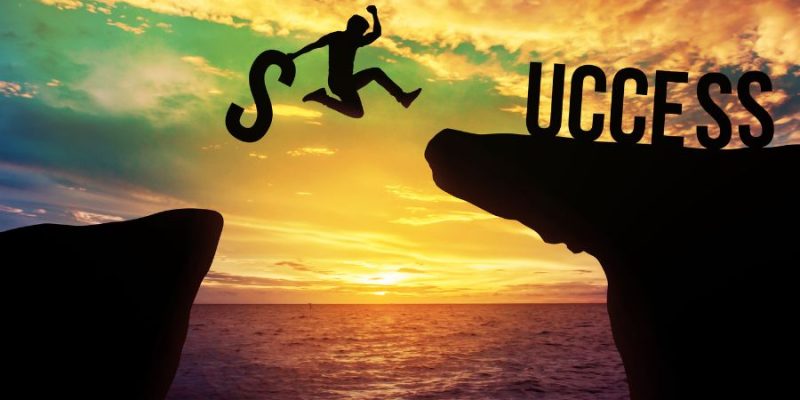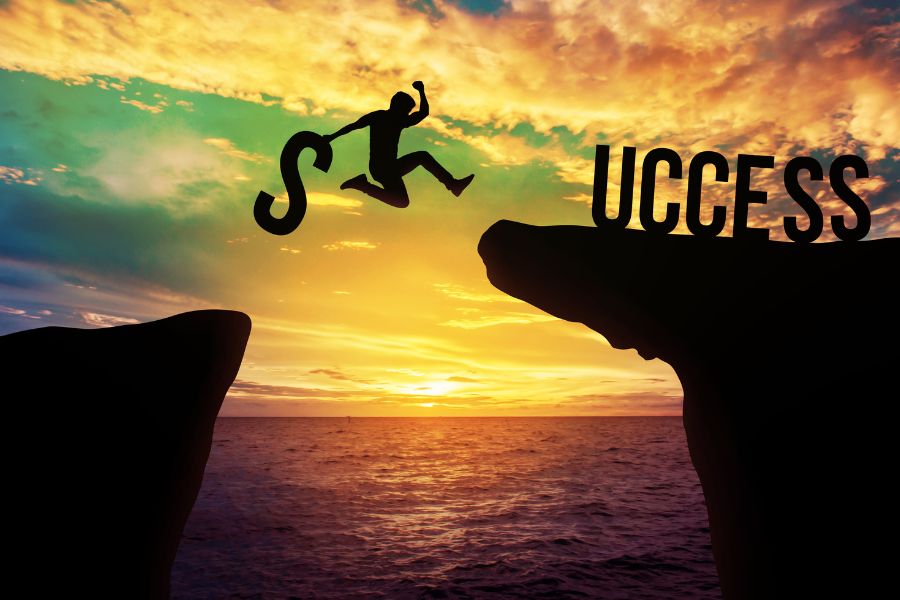My dad encouraged us to fail growing up. He would ask us what we failed at that week. If we didn’t have something, he would be disappointed. It changed my mindset at an early age that failure is not the outcome-failure is not trying. Don’t be afraid to fail.”- Sara Blakely
When was the last time you viewed failure as a positive thing? If we are completely honest with ourselves, it doesn’t happen very often, if even at all. Most of us hang our head in shame when we “fail” or avoid making changes out of fear of failure. But what if there was a better way.
Let me warn you, changing your relationship with failure is not an easy task. For many it will bring up insecurities that may feel too overwhelming. If at anytime this subject causes you to struggle to the point that it is having a negative influence on your life, please discuss your symptoms with your doctor. Additionally, there are many great resources available online that go much deeper than this article. This article takes on just one facet of a very complex topic.

Wounds to Wisdom
If you are a human being you will make mistakes, cause pain, loose something valuable, etc. The list goes on and on. Why? Because human beings are not perfect. We know this logically and yet so many of us still feel shame when failure happens. (It is important to remember the difference between shame and guilt. Shame says “I am a bad person” and guilt says “I did a bad thing”. )
However, taking the time to process through the experience of failure can not only be healing, it can also bring an enormous amount of wisdom.
Steps to Normalizing Failure
Evaluate your emotions
The first most important step in changing your relationship with failure is to take a little time to evaluate how you are feeling. The questions in the next section can be a helpful resource in doing this.
Forgive yourself
Forgiving yourself for not being perfect or accomplishing a task with excellence is much easier said than done. However, allowing yourself the space to recognize and accept your emotions as not being “bad” or “good” is the first step in forgiving yourself. Note: It is also important to recognize that you are not your emotions. This interview is an incredible resource when making peace with your emotions.
Lessons Learned
Once you have taken the time to evaluate your feelings and have forgiven yourself then it is time to identify what lessons were gained from this experience. More often than not, doing this self reflection will help you identify values you may not have known you hold. As an example, you may learn that overcommitting yourself leads to massive burnout that causes you not to be present with your family. You may recognize that your feel resentful, tired and unsuccessful and that Sunday dinner is extremely important to you. On closer evaluation you understand that having a high level of energy allows for that quality of time. You also identify that taking on the extra volunteering, although important to you, is not as important as Sunday dinner.
Questions for Self Reflection
- How do I define failure?
- Does talking about failure make me uncomfortable?
- What can I do to help to feel more comfortable with failure?
- When thinking of a specific failure, am I feeling shame or guilt? Note: Shame says “I am a bad person” and guilt says “I did a bad thing”.
- Am I willing to except that failure is a normal part of life and the road to success?
- Am I willing to lean into the discomfort that evaluating these emotions will evoke?
- Am I willing to find a trusted person to talk to about my emotions?
- Thinking of a specific failure I had in the past, what emotions did this event evoke in me? Note: Here is a helpful resource in breaking down the different emotions to help identify more specifically your emotions?
- Going deeper with my feelings, am I seeing that I have multiple emotions about this failure?
- Do my emotions conflict?
- Breaking down each emotion, what does each one say about what I value in life?
- How can I start to better apply those values to my daily life?
- Does uncovering my values help to ease the pain of failure?
- Who could benefit from me sharing about my journey?
- Knowing that this journey takes time, am I allowing myself to take breaks from self reflection when needed?
- Is there a failure I am avoiding looking at? If yes, is it because I feel shame about that failure?
More Resources
Have you ever struggled to find a journal with thought provoking questions that helps you better understand yourself? Look no further, a Journal for Self Discovery starts you on the path to a deeper and more meaningful relationship with yourself. With 100 thoughtful questions that will immediately start to bring you clarity into what is most important to you.
Additionally, I am not a licensed therapist. I am however trained in Motivational Interviewing and have a passion for helping others better understand their emotions. Please check out the other articles on this website for more self reflective questions.






